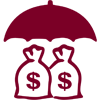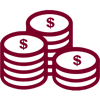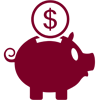Lease Vs. Buy
There are lots of great deals out there when it comes to leasing or purchasing a car. When deciding on whether to lease or purchase, it all depends on what drives you. Is it a lower payment? The need to have a new car every 2 years? No matter what you are after, take a look at the checklist below to help make your decision.
| Buying | Leasing |
|---|---|---|
I need the lowest payment possible to fit my budget | Payments are higher because your balance is larger. You are paying for the price of the car + interest. Sometimes sales tax and finance charges are also included in your loan balance. | Since you are paying for the depreciation of the car’s value the payments are almost always lower |
I want to own the car after making payments | Once you have finished with your last payment, the car is all yours! | The car must be returned at the end of the lease period unless you negotiate with the dealer at the end of your lease term and purchase the vehicle. |
I don’t want any restrictions | When you buy a car you don’t have to worry about excessive mileage, making customizations or other normal wear issues that happen over time. | With a lease, adding customization like window tint is tricky and there is usually a set amount of miles you can travel during the term of your lease. If you exceed that limit you may have to pay extra at the end of your lease. |
I don’t have much for a down payment | When buying, depending on the financial institution you may have to have some type of down payment. You may also need extra funds for taxes and getting the vehicle registered. | With a lease, it depends on the deal. Make sure to read the fine print. Typically leases require a security deposit, first month payment, down payment, taxes and fees for registration. |
In the end, it is ultimately up to you to weigh the pros and cons of leasing vs. buying before making a decision. Determine your needs and decide which is right for your financial journey. CoreFirst is always ready to help with solutions for your financial objectives.




